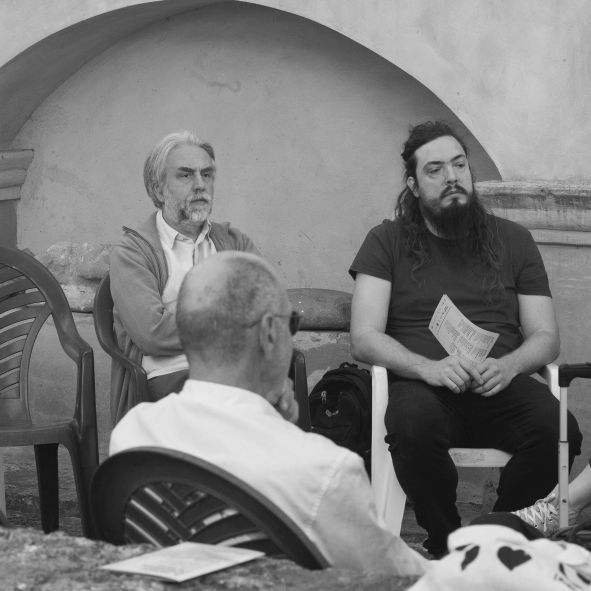Sebastijan Pešec
Research assistant at the Department of Philosophy, Faculty of Arts, University of Ljubljana

Sebastijan Pešec works in the project “Buddhism in the Himalayan Deserts: the Tradition of Yogis and Yoginis in Ladakh”. His interests include Vajrayana Buddhism, the Kagyu school, Daoism, Nietzsche's philosophy, ethics, environmental ethics, philosophical anthropology, philosophy of religion and the history of Ladakh area.
Nietzschejevo vrednotenje trpljenja – Sebastijan Pešec
Nietzschejeva misel je polna komplementarnih nasprotij, kar je redka izjema v evropski filozofiji. Oba para nasprotij – čeprav v nenehnem medsebojnem boju – vidi kot nekaj, kar je treba afirmirati. Ne bi smeli hoteti odstraniti ene strani v paru. To velja tudi za trpljenje. Trpljenje potrebujemo kot nujen vir za rast moči in samopreseganje. Nietzsche pravi, da je želeti odpraviti trpljenje enako kot želeti odpraviti slabo vreme. Družba, v kateri ne bi bilo trpljenja, bi postala dekadentna in bi kmalu odmrla. Nietzsche trdi, da večji kot je odpor do volje do moči in s tem večja kot je bolečina, večja slast in občutek moči izhaja iz premagovanja odpora in bolečine. Slast je zanj vrsta bolečine. Vse to se lahko v sodobni etiki sliši kontroverzno in ostro, a pravo vprašanje za sodobni čas, ki nam ga postavlja Nietzsche, je, koliko in kakšno trpljenje resnično potrebujemo kot posamezniki in kot globalizirana družba – kot človeštvo, ki ga pesti kopica kriz. Trpljenja za Nietzscheja ni mogoče preprosto označiti za zlo. Je koncept, ki vsebuje različna vrednotenja: lahko je zlo, dobro, koristno, nevtralno itd.
Vprašanja za udeležence:
- Kakšno trpljenje je koristno za človekovo uspevanje in kakšno trpljenje je nasprotno temu?
- Kam Nietzsche umešča trpljenje v štiristransko shemo dobrega in zla ter dobrega in slabega?
- Ali idealni čezčlovek zmanjša ali poveča količino trpljenja na svetu?
Nietzsche’s valuation of suffering – Sebastijan Pešec
Nietzsche's thought is full of complementary opposites – a rare exception in European philosophy. He sees the pair of opposites – even though in perpetual infight – as something that should both be affirmed. We should not want to eliminate one side of the pair. This goes for suffering as well. We need suffering as a necessary source for growing stronger and overcoming ourselves. Nietzsche says that wanting to eliminate suffering is like wanting to eliminate bad weather. A society where suffering would be gone, would become decadent and soon die off. For Nietzsche the greater the resistance to will to power and thus the greater the pain, the greater pleasure and feeling of power comes from overcoming the resistance and pain. Pleasure for him is a kind of pain. All this can sound controversial and harsh in modern ethics, but the real question that Nietzsche gives us for contemporary times is, how much and what kind of suffering we truly need as individuals and as a globalized society – as humanity that is plagued with a plethora of crises. Suffering for Nietzsche cannot be simply labelled as evil. It is a concept that houses many valuations: it can be evil, good, useful, neutral etc.
3 Questions:
- What kind of suffering is useful for human flourishing and what kind is its opposite?
- Where does Nietzsche positions suffering in the fourfold schema of good and evil, and good and bad?
- Does the ideal overman reduce or increase the amount of suffering in the world?
Links:
https://lifeworthliving.yale.edu/resources/nietzsche-on-the-discipline-of-suffering
https://thomashurka.com/wp-content/uploads/2014/02/nietzsche-perfectionist.pdf


































































